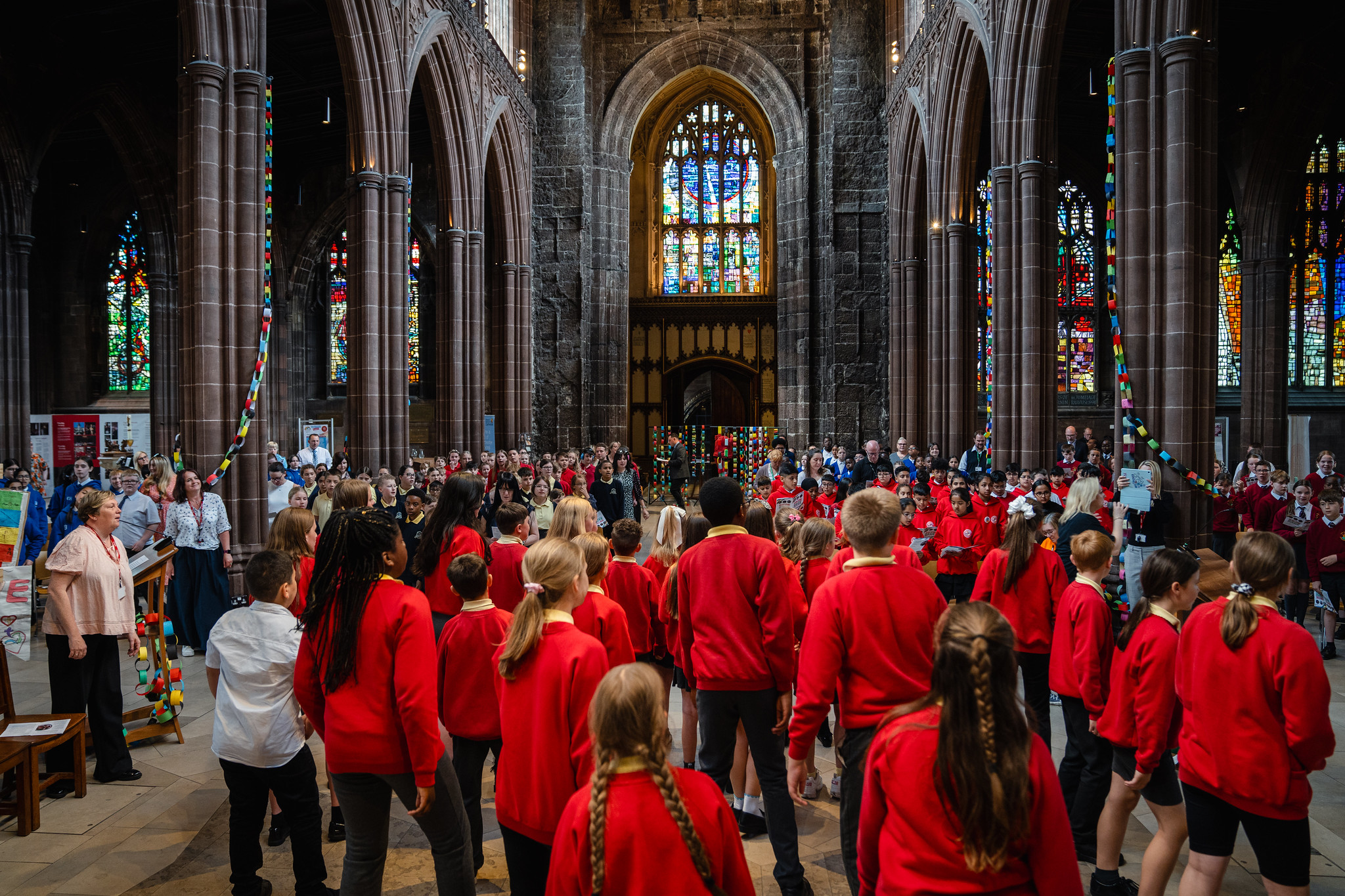
FOR SCHOOLS
Religious Education and Collective Worship
The Diocesan Board of Education runs regular training courses in in Religious Education, Collective Worship, church school self-evaluation and aspects of church school ethos. There are also advisers available to respond to individual school’s needs in these areas and to help prepare schools for their SIAMS inspections.
Religious Education
Religious education in voluntary-aided schools is the responsibility of the governing body. Frequently, this follows diocesan advice as outlined in the diocesan syllabus for religious education. However, teachers and headteachers in aided schools must confirm this with the governing body.
Voluntary controlled schools must follow their local authority’s agreed syllabus for religious education but may find some parts of the diocesan syllabus useful in doing so.
Diocesan Certificate for Leaders of RE
The Diocesan Certificate for RE Leadership is awarded to those RE Leaders who have engaged with a wide variety of professional development opportunities and, through reflection, have applied the principles to enhance specific aspects of their RE provision. The certificate requires completion of three parts. Part A outlines the four compulsory sessions, these are the RE Development Days exploring effectiveness, quality, RE beyond expectations and inclusive RE. Part B offers a choice of two additional sessions to be completed from six options. Part C is the completion of a reflection evidence base highlighting engagement in content and the impact of the sessions on leadership and school practice. All parts must be completed within a two year window.
For more information please see the overview document. To apply for the certificate, please download the editable evidence document. This will be needed to collate your evidence base for submission.
Collective Worship
Collective Worship in a church school provides the opportunity to gather as a community, to give thanks, to be still, to pause from the daily activities, to explore big questions, to ponder on the character of God, to explore the teachings of Jesus, to engage with ancient texts for spiritual and literary benefit, to affirm the Christian values of the community and to celebrate key events from the Christian year. The list of benefits could go on and they apply to all members of the school community.
To support our schools in providing exceptional collective worship, we have produced a guidance and support document. This outlines the requirements of collective worship as well as supporting schools in the development of policy and planning.
Collective Worship Quality Mark (CWQM)
The purpose of this quality mark is to support school leaders in providing impactful collective worship. This mark seeks to make collective worship a priority and ensure its quality. We hope its content will be of use to you in defining, partnering, leading and evaluating collective worship within your setting. The quality mark process is structured to address these key four areas for enquiry.
Contact Information
For more information on the RE Syllabus, Christian Distinctiveness and Collective Worship please contact:
Rev Terry Hart, Deputy Director of Education
Louise Morley, Assistant Director of Education